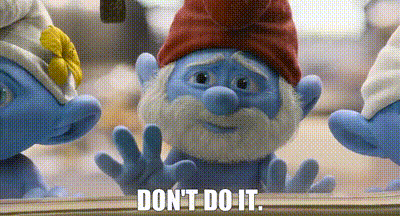Anybody who’s obsessively attempted to manage their workload or conquer their productivity will have experienced the joys (and pains) of making a to-do list, or a Trello/kanban board. You enter a zone where you become laser-focused on task completion; yet the tasks will never end, and all that you can hope to do is to tackle the correct tasks in the optimal order, to get valuable work done.
Yet, in the background, there are many other things that we “do” on a day-to-day basis, some of which we may be doing unknowingly, which restrict the amount of time that we have available to spend on the things that give us value. One way to address this is by creating a “Not-To-Do List”, identifying activities or bad habits that you wish to eradicate, in favour of intentional work.
What belongs on a Not-To-Do List?
While there’s no hard and fast rule about what to put on your Not-To-Do List, here are some questions which might give you some ideas:
- What are the biggest or most regular distractions in your day?
- Are there activities in your day which feel like a “waste of time”?
- What do you wish you could say “no” to, but keep saying “yes” to?
- What do friends, family or work colleagues say that you are spending too much time doing?
- What do you do which could easily be delegated to somebody else?
- Which activities are stressing you out, or draining your energy?
- Which items on your “To Do List” are you completing just for the sake of completion?
- What do you always try to quit during Lent or your New Year’s Resolutions?
Answering these questions may reveal aspects of your life where you could cut back, or be more stringent on how you spend your time. Even if they’re not work-related, they may offer tangible benefits to your productivity; for instance, a desire to stop bingeing on evening takeaways may lead to more restful sleep and a clearer head.
If you’re not sure what’s draining your time, one way to identify undesirable time-syncs is to keep a granular diary for a day (or, if you’re feeling brave, a week) where you dictate everything that you did in the prior 10 or 15 minutes. Be honest: were you checking Facebook? Browsing Amazon? At the end of the day, cluster your activities into categories, and then ask yourself questions:
- Which categories consumed most of your time?
- Did you find yourself spending more time than expected on a particular activity?
- Which categories don’t seem like they’re worth the time that you’re spending on them?
- How could you minimise the time that you spend on those categories?
- Are there activities that you could eliminate altogether?
You might even want to consider plotting your daily activities onto an Eisenhower Matrix, to see how many “less important, less urgent” tasks are occupying your precious time.
If you’re really stumped for ideas, try looking at examples of other peoples’ Not-To-Do Lists. Everybody is different, but they might just give you a spark in an area that you hadn’t considered: check out Tim Ferriss’s Not-To-Do List, for example.
Optimising your Not-To-Do List
By this point, hopefully you’ve got a long list of habits and activities that you might want to eliminate. This is fine - we’re only human: we can be obsessive, compulsive and ritualistic beings.
However, trying to eliminate everything at once can be counterproductive. Your list will be so lengthy that you’ll constantly have to refer to it, in order to remember what it contains: you’ll have to add “Spend less time checking my Not-To-Do List” onto the end of it!
Therefore, it’s worth trying to keep your list relatively small - 10 items is a good benchmark. That’s about the limit to the number of items that you can easily remember without checking it; or, at the very least, print on a single sheet of A4 and keep it in your eyeline during the working day. Focus on the items which will gain you the most value: which items are most time-consuming, or are you doing most often? Which task(s), if eliminated, will give you the single biggest boost in focus time?
Once you’ve got your list, you also need to enforce it. If you’ve got issues relating to particularly websites or apps, a subscription to Freedom could be the best gift that you ever give yourself: it’s a tool which effectively proxies your internet traffic and prevents you from spending time on sites that you don’t want to (you can block a site altogether, set a daily time limit, or prevent the site from being accessed during key productive hours). Ask your friends/family to keep you honest too, particularly if you’re attempting to fix habits that they reported in the first place. Hopefully you’ll find yourself gradually doing less of the things that you don’t want to, and more of what matters to you.
Key takeaways 📝
- We don’t have much free time; let’s stop spending it on the wrong things.
- Make a list (or log) of the anti-productive activities which are consuming your time.
- Narrow the list down to focus on the biggest time sinks.

